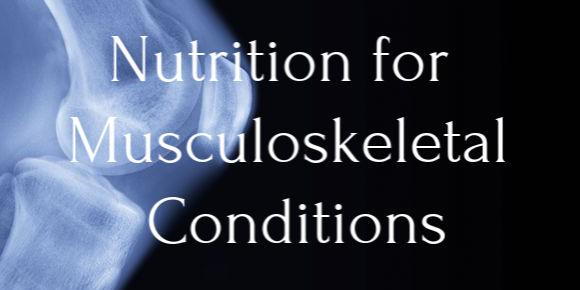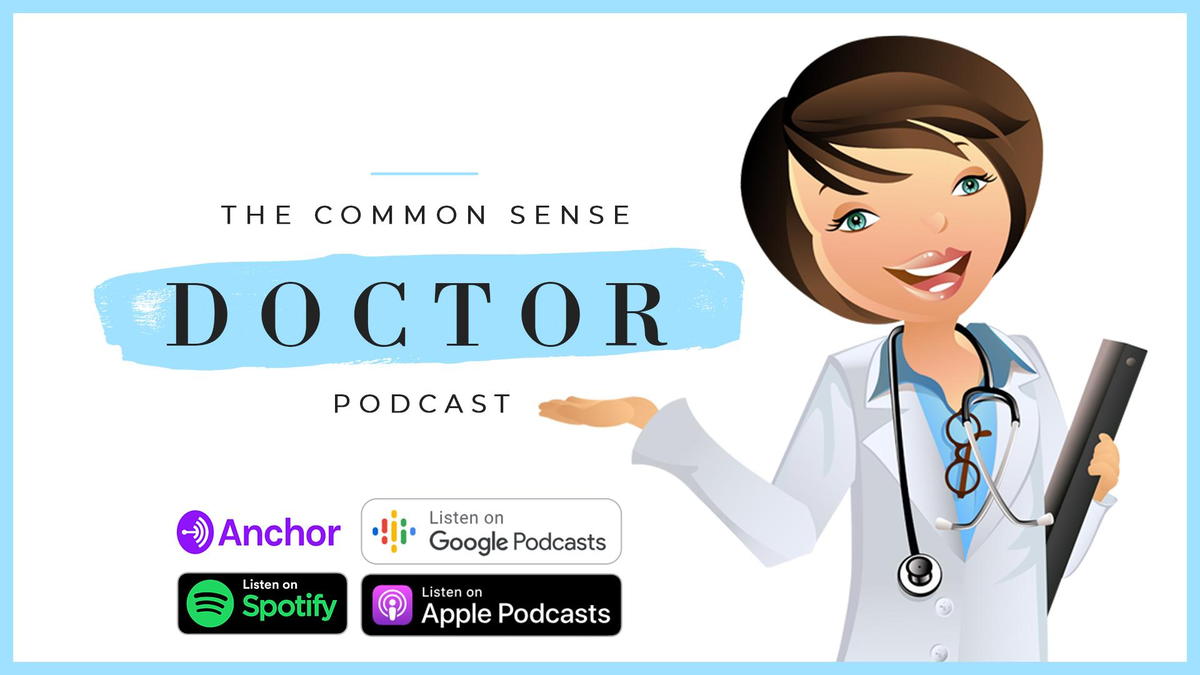By now, you should have read most of my blogs leading up to this issue, Nutrition. I have learned over the years, you can exercise, stretch, do yoga, receive chiropractic care and massage, but until you feed your body, you will never heal from your infirmities. Nutrition is an essential part of our healing, repair, and sustainability. This is why patients are dealing with chronic conditions. I have said multiple times, “You can be riddled with arthritis, but if you feed your body you will never have an ounce of pain.” You don’t think this is true, I have seen it with my own eyes!
I find our muscles, tendons, and joints all rely on constant motion to push waste out and allow nutrients in; this is why movement is so important. In today’s world we are beyond sedentary, we are zombies! I love the cartoon movie “Wall E”. The opening of the movie showing how people in space live and it is a fantastic example of who we have become.
VIDEO
" If we don’t get motion then we can never support our tissues and skeleton. "
How do we support our musculoskeletal system beside movement?
Nutrition
It is a question asked all the time and I would like to divulge a few secretes on nutrition and our health.
First, most people know about MSM and Glucosamine for our joints. I definitely support the use of these. But what else are we missing that may be causing some of our musculoskeletal issues? Very easy. Our muscle tissue uses Magnesium and Calcium to contract and relax as well as Potassium and Manganese. Notice how I categorized the two nutrients together. That is because they work as a team like husband and wife. One follows the other and is necessary for its function.
When I used to teach anatomy and physiology, I tried to give a visual for students on how muscles contract and relax. The fibers in the muscle have a kind of hook and pocket mechanism. I used to visualize a wood golf club being extended out and dropped into a bucket and then pulled toward you. That pulling motion is a contraction. This fiber it needs that calcium and magnesium to facilitate this contraction and relaxation. Therefore, if we have very low calcium, we get severe muscle cramps! If we have low magnesium (which is needed for every cellular function in the body) we will get headaches and neck pains. For muscle spasms or tight neck and back pain, I will usually recommend high doses of calcium and magnesium. It is notorious for other health professionals who have a cliff note education on nutrition to give recommendation for people to take high doses of Magnesium. Be wary of this because high doses of magnesium can cause heart arrhythmias. I have diagnosed this on many patients who scheduled appointments to the cardiologist for this condition, especially children. This is why I am adamant in whole food nutrition instead of taking synthetic supplementation.
Typically, whole food nutrition contains all the essential vitamins and minerals for these supplements to work in unison. We have a horrible problem of isolating minerals or vitamins and then giving them in high doses without their synergistic partners. It is funny how mother nature made food with all these nutrients in them that work synergistically, yet in Western Medicine we feel the need to isolate them to work alone. Be careful of this type of treatment and recommendation. This is why we also like to recommend Epsom Salt Baths, which contain these natural minerals that help relax and support the nutrition of musculoskeletal issues.
Here is something I personally like to recommend to women during pregnancy. Lavender oil. It is not typically a nutrition, but it is used in many culinary and medicinal treatments. Lavender is a natural antiseptic, relaxant, and muscle relaxer. Many women during pregnancy have adrenal issues, skin issues, and muscle issues. Lavender oil, teas, and herb works for all of these conditions and it has always been my “go to”. This can be used by anyone and I recommend it for headaches, tight muscles and aching muscles topically and as a tea.
People have always recommended Potassium for cramps; hence this is why in the old days runners or someone with a runners cramp was told to consume bananas. Yet, I have to remind people that your heart is a muscle. Consumption of these nutrients in a food is fine because, as I said before, there are other nutrients to help it work synergistically. Yet, isolating may not be the best since these nutrients can affect other organs in the body as well, such as kidneys and heart. Too much potassium can affect the rhythm of your heart and stress on the kidneys to remove this excess potassium.
I am afraid to bring it up, but CBD is great for soft tissue in its effect to reduce inflammation. The reason I do not like to bring it up, is because there are so many types of CBD phytochemicals and each one affects different processes in the body. The research is vast and confusing, and the processing is even more controversial. Products like these are being sold by every drug store and gas station. We really must focus on the quality, the plant, the phytochemical, and the processing. I prefer to stay away from this subject, since so many people are dabbling in it. Just be very cautious in what you purchase and learn more about the quality. This topic alone is a two-hour lecture and that is a basic knowledge lecture. What I do know, it works, it is great for inflammation as well as other conditions, and it helps a lot of people.
We are talking about feeding the muscle and tissue and one of the most import things we forget about is something we did for centuries until the last two generations, eating collagen. Collagen is fantastic for muscles, and it supports that elasticity in our joints and tissues. Collagen is that glistening stuff on the bones and tissues of meat. The stuff we try to cut out and discard and avoid. I grew up in Mississippi and I remember people eating pickled pigs feet. In Mexico, many people cook and eat chicken feet. I even remember reading “Little House in the Big Woods” with my daughter, as it explained how they butchered a hog and the girls fought over who would get the pigs tail to eat. These were once delicacies and our forefathers new the importance of them for keeping our joints pliable. Today we turn our noses up to even the mention of this. Fortunately, collagen is coming back in style. You can now see nutrition bars that advertise collagen, protein shakes with collagen, and even bone broth (which is one of the most important forms of whole body health ever) is being sold in stores. I am even seeing collagen supplements. Since our American culture no longer cooks the way our forefathers have done in the past, then I find any form of getting collagen in, is fine by me. I used to tell people to buy Knoxx gelatin (not the fake stuff) and cook with it to get this good collagen.
The next all-over best health supplement that will also support your musculoskeletal system is Fish oil. Let me tell you a little story. Again, in the olden days, when people complained of arthritis in their joints, they would spray a WD-40 on it and the pain would go away. Now, I would not recommend this today, but I will tell you why it worked. Long ago when this product was first designed, it was made with Fish oil. People used to coat their joints with fish oil and leave it overnight. The oil would soak in and lubricate the joints, providing nutrients to the tissue and skin and pain was gone. Fish oil is fantastic for joints, muscle, brain, heart, inflammation reduction, and all over body processes. You can’t go wrong by adding fish oil in your diet. I will let you know, an adequate amount is 5,000 mg/ day. It is what we recommend for people who have been in car accidents. Of course, I have seen so many chronic and deficient cases that I recommend this for everyone now.
Can I give you the final magic pill of all magic pills? WATER!!! I cannot emphasize how water is so necessary for all cell structures and tissue. Over 80% of our body is made up of water and we can’t seem to replenish this quick enough. With artificial drinks, caffeinated beverages, sodas, boxed food and preservatives. We seem to be pulling out our water faster than we can put back in. Many times, I explain to my patients that your discs and muscles are made of water. If your organs need this fluid, then it will pull water out of the least important parts of the body: disc and soft tissue. Therefore, we get degenerative disc issues, and muscle tightness, aches, and pains. Many times, that crunching noise in your neck when you move it around, is not arthritis! It’s dried ligaments and tendons. Have you ever seen the flat beef jerky sticks? That is dried meat. When you try to bend the stick in half you can see the crackling of the fibers and hear that crunchy brittle sound. This is your dehydrated neck muscles and tissues. You have dried out your tissues so much, they are turning into beef jerky. Not literally, but you can now visualize this process. This is where water is needed to rehydrate these tissues. It also allows the filtering of toxins, produced by these muscle fibers, such as lactic acid. I will typically recommend my patient drink straight water for three days. Nothing else!!! They should notice this crunching noise has decreased or gone away completely. Yet, they must drink at least half their body weight in ounces, so I know they are getting (at least) a sufficient amount of water. People are amazed on how their aches and pains have even gone away and the tightness is almost disappeared. And that is in three days. If we drank more water and ate more vegetables to get those essential minerals, increased our essential fatty acids (fish oil) and cooked more with whole animal, wow, we would be in a perfect place!
These are just some basic and simple ways to supplement and support your musculoskeletal system. I like to remind my patients, if you treat your body right, it will treat you right.
Thank you for reading and to learn more, please visit my podcast “The Common Sense Doctor”.



